 The freshmen seem to be confused, annoyed, and avoiding participating.
The freshmen seem to be confused, annoyed, and avoiding participating.
They are the first students in the new general education system, known as Rollins Foundations in the Liberal Arts (rFLA) or just as the “neighborhoods.” The first years have to watch the upperclassmen graduate using a different general education system, while they start a new system that requires more participation and less flexibility.
Despite popular faculty support for the program, three of the neighborhood’s mayors are stepping down at the end of this year.
Though the faculty and students both enjoy the classes themselves, the two groups have different perspectives on what needs to change about the system going forward.
“Even though there have been some bumps, I cannot imagine a more smooth beginning for a complete curricular overhaul while 75% of the campus (the 2nd-4th year student population) remains on the previous system,” said Dr. Todd French, an Assistant Professor of Religion who will be taking over as the Mysteries and Marvels mayor next year.
He added, “This success is largely due to the foresight of Claire Strom and the current mayors, coupled with the committed faculty who agreed to teach in the first round of offerings.”
The main thing that works for both students and faculty is the engaging themes and content of the courses. Many of the classes have exciting titles, like “Sex, Drugs, and Rock ‘n Roll: America in the 1960s,” “We don’t know Jack: Looking for Jack the Ripper,” “Gruesome Anatomy,” and “Creating the Comic Book City: From Fantasy to Urban Realities.”
“The unique topics of the neighborhood courses are an intriguing way of getting through the dreaded ‘gen eds,” said Grace Dearden, ‘18.
The professors enjoyed creating the courses as much as the students enjoy taking them. They also like the increased meetings with other faculty members, which allow them to share ideas.
“My favorite part about teaching in the neighborhoods is having the opportunity to craft a new class in relation to a theme. It’s been great fun getting to know fellow professors teaching in my neighborhood,” said Dr. Mackenzi Moon Ryan, who teaches in When Cultures Collide.
Despite the fun classes, the faculty and students have different perspectives on what is not working. The professors are seeking to get students more involved, and the students are looking to avoid events and only take convenient classes.
For the administration, one of the most obvious problems is simply reaching the freshmen and convincing them to be a part of the neighborhood’s community.
“The first-year students are having some trouble wrapping their mind around that they are in these classes, that just they are taking. I think that will go away once the system is fully up, and everybody is in [neighborhood] gen ed classes,” said Dr. Claire Strom, Director of General Education. “Perhaps we are not explaining gen eds clearly enough, perhaps it is just because it is the first year.” Another major problem is the fact that the classes are full of only freshmen. This is the first time that the college has secluded second-semester freshmen, which eliminates the behavior modeling that usually comes with the presence of upper classmen.
“There would be a degree of peer modeling in terms of behavior,” said Strom, regarding how classes worked in the old general education system. She added, “We are having some interesting challenges in terms of how do you reach that group?”
The answer? Most of the freshmen simply do not want to be reached. They are mostly annoyed because they continue to compare their new, less flexible neighborhood communities with the old “alphabet soup” system.
“I wish we had the old gen ed system,” said Tiffany Chater, ’18.
Many of their complaints relate to the time commitments and rigid structure of the new system. One major thing that students grumble about is the mandatory events, usually held to try and build community.
“I hope to make events more appealing and feel less forced. My goal is to inspire students to recognize that their participation will only enrich their collegiate experience, both intellectually and socially,” said Dr. French.
Some neighborhood events have been well attended, but others have been lacking. It seems that participation has gone down as the semester has worn on, but some of the neighborhoods lacked enthusiasm as early as the rFLA launch.
Peter Ruiz, ’15, a Community Coordinator for ICE, said, “My least favorite thing about the job was Launch. Each neighborhood has its own particular identity and culture already forming, my particular Neighborhood, Identities: Mirrors and Windows, wasn’t really excited to compete.”
Under the old system, students were able to take general education classes at any point during their time at Rollins. Subsequently, a big complaint is the neighborhood system’s class flexibility. For example, the neighborhood classes are offered mostly during the morning.
“I wish there was more of a variety of times for the classes. The majority are 9:30-10:45 on TR [Tuesday/Thursday]. It often collides with other classes I need to take,” said Zoe Monge, ’18.
Students also have issues with the class options and the high levels of some of the newly required general education classes, instead of the basic, 100 levels that are common in the old system.
“I do not like the idea of taking Gen Eds at high levels, such as 300+, as I am trying to finish classes for my major. I do not want to be worried about a Gen Ed that I could have taken a the beginning of my college career,” said Jasmine Stone, ‘18.
Though the neighborhood system obviously has some issues with student support and participation, many of them will probably be rectified as they new system moves forward and gains more and more students, and the old general education system is phased out.
“I think we have to understand, through this first term, how to work more effectively as a community,” said Dr. Maurice O’Sullivan, Mayor of When Cultures Collide. He added, “We don’t really quite have a grasp on that, which is not surprising for something so radically new.”
For now, the freshmen remain confused, annoyed, and lacking the community Rollins wants to give them.

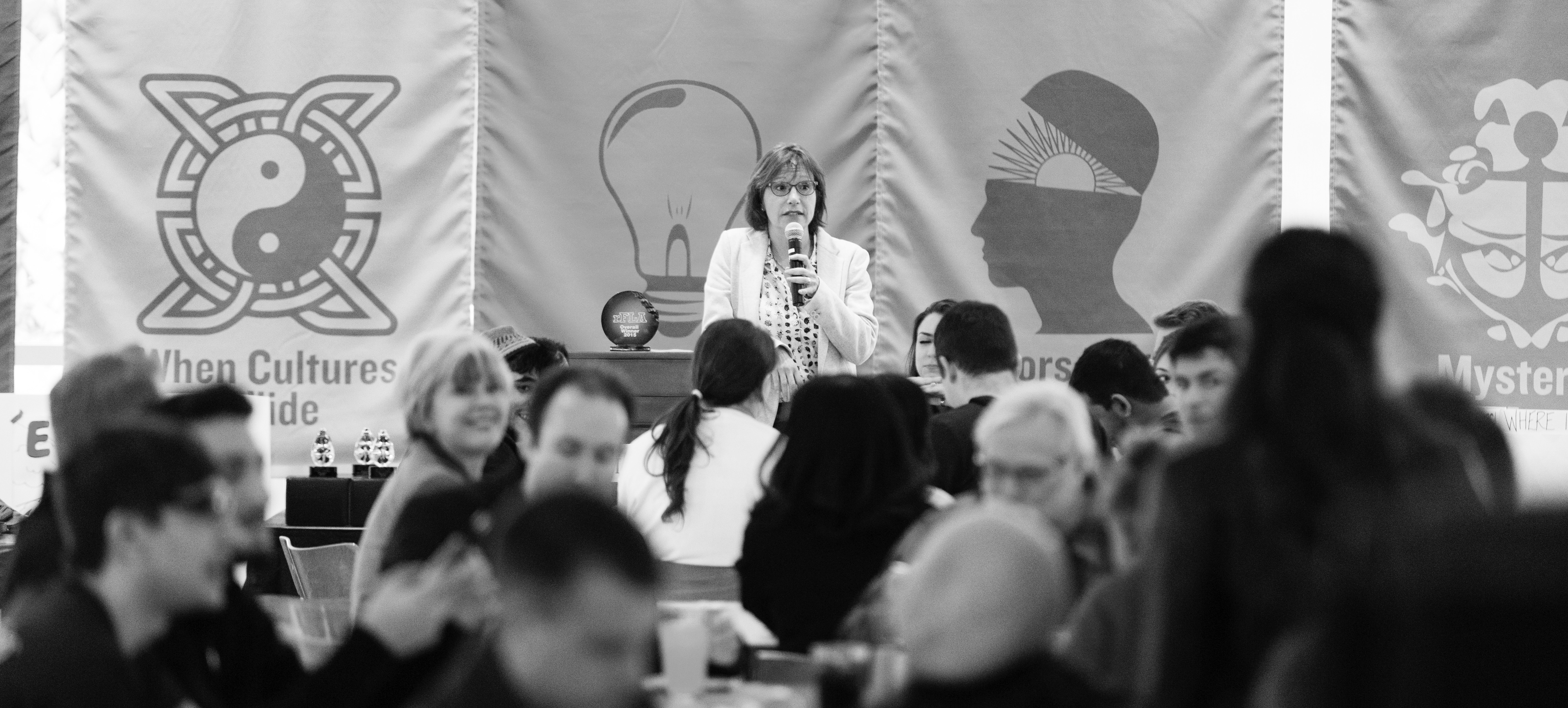
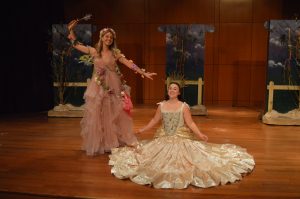

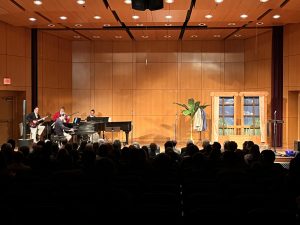

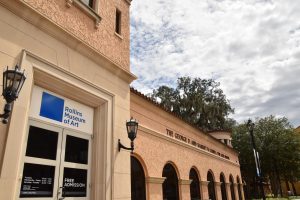


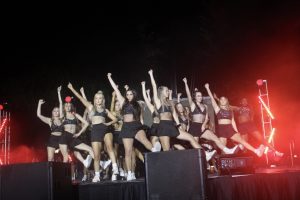






Be First to Comment